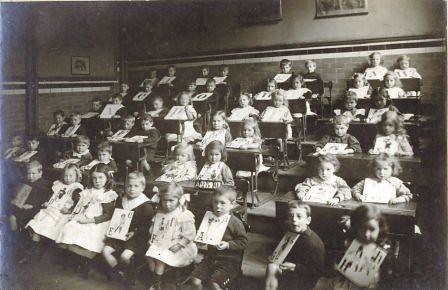British schools:
- What is the difference between a ‘comprehensive school’ and a ‘grammar school’?
- A ‘secondary school’ is a school for pupils aged ____-_____.
- What is the difference between ‘further education’ and ‘higher education’?
-
Children in the UK have to legally attend primary and secondary education,
which runs from about _____ years old until the student is _____ years old.
- The education system in the UK is also split into key stages: Key Stage 1 (from ___ to ___ years old);
-
Key Stage 2 (from ___ to ___ years old);
Key Stage 3 (from ___ to ___ years old); and
Key Stage 4 (from ___ to ___ years old).
- What is the name for a school that is funded by the government so pupils don’t have to pay fees?
- What is a ‘public school’? Give some examples of famous public schools.
-
The ______________________
was introduced by the UK government
under the Education Reform Act of 1988. It consists of a set of core and foundation subjects. The _______ subjects are English, maths and science, and the _______ subjects are design & technology, information and communication technology (ICT), history, geography, art & design, music, physical education, modern foreign languages (Key Stage 3 only) and citizenship (Key Stage 3 and 4 only).
-
The most important assessment occurs at age 16
when students pursue their GCSE’s or _____________________________________________________
.
- The Cerificate of Education Advanced Level (A-level)
is obtained by the age of _____ and
the grades obtained
will be taken into account when applying for a place in Higher
Education.
- What are ‘vocational qualifications’?
-
Universities fall into four broad categories:
the ancient English foundations
(_________ and ________, founded in the 13th and 14th centuries
respectively),
the ancient Scottish ones
(_________, _________, _________ and _________, all founded in the
15th and 16th centuries),
the ‘redbrick’ universities
(founded in the major industrial cities of England in the _________
era),
and the ‘plateglass’ ones
(founded in the 1960s).
- There is also a successful _________ University,
which uses a variety of methods for distance learning.
- The first degree offered at British universities is
the ___________________ (typically three years).
-
During a first degree
students are known as ___________________.
-
Students who have completed a first degree
are eligible to undertake a ___________________ degree,
which includes
a ___________’s degree (typically taken in one year) or
a ____________ degree (typically taken in three years).
American schools:
- In the USA compulsory education is divided into three levels: ____________ school, ____________ school and ____________ school.
- Children are divided by age groups into ________________.
- Elementary school covers education from 6/7 year-old to 10/11 year-old, going from ____ grade to ____ grade.
- Middle school covers from ____ to _____ grade (from 11/12 year-old to 13/14 year-old)
- High school covers from ____ to ____ grade (from 14/15 year-old to 17/18 year-old).
- The last four grades in high school are called _________, _________, _________ and _________.
- A major characteristic of American schools is the high priority given to ___________________ activities, such as sports, clubs, orchestras…
- High schools have guidance ____________ to whom children can go privately if they have any problems, especially about their careers.
- At the end of the 12th grade, students attend the ‘_______’ event, which is a very formal dance where girls wear long evening dresses and boys wear __________.
- The completion of High School (when students obtain the High School Diploma) is called ______________ and it is celebrated with a formal ceremony where students wear a special cap and _________.
- The fact that most children have had foreign-born parents for generations means that schools have been used to build up a sense of Americanness and the majority of schools start each day with the Pledge of ___________.
- Home_________ is another option of education in the USA.
- Post-secondary education in the United States is known as __________ or university.
- Like high school, the four undergraduate grades are commonly called __________, ___________, ____________, and _____________ years.
- Once admitted in university, students engage in undergraduate study, which consists of satisfying university and class requirements to achieve a bachelor’s degree in a field of concentration known as a _____________.
- Most students receive federal ________ to cover part of the cost of their studies and some receive federal ________ or scholarships from other sources. Some students get scholarships to universities if they show promise in sports like football, baseball or basketball.
- Private universities composing the _____ League, like Harvard, __________ and __________, are the best-known.
- It is said that in terms of research output and of Nobel prizes won by academic staff, the most prestigious is the University of ____________ at Berkeley, which is a public institution.

